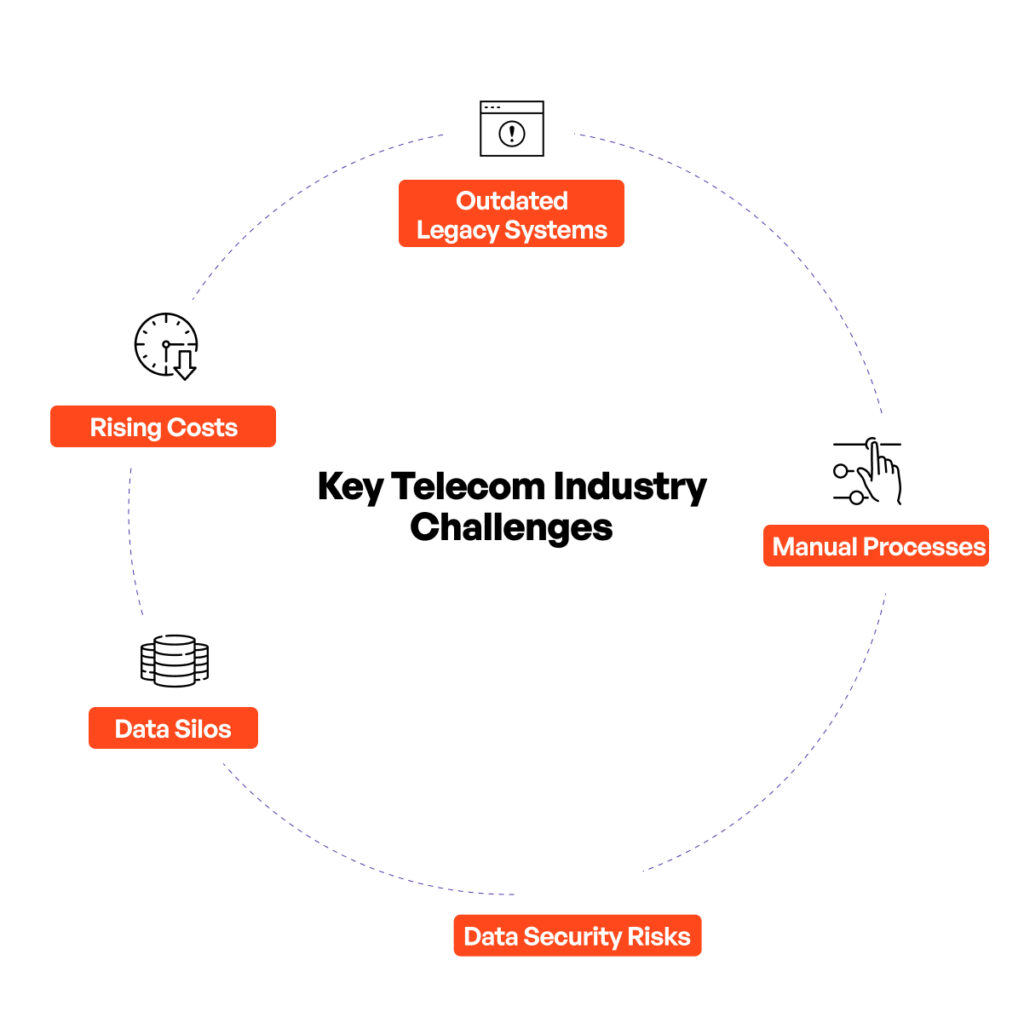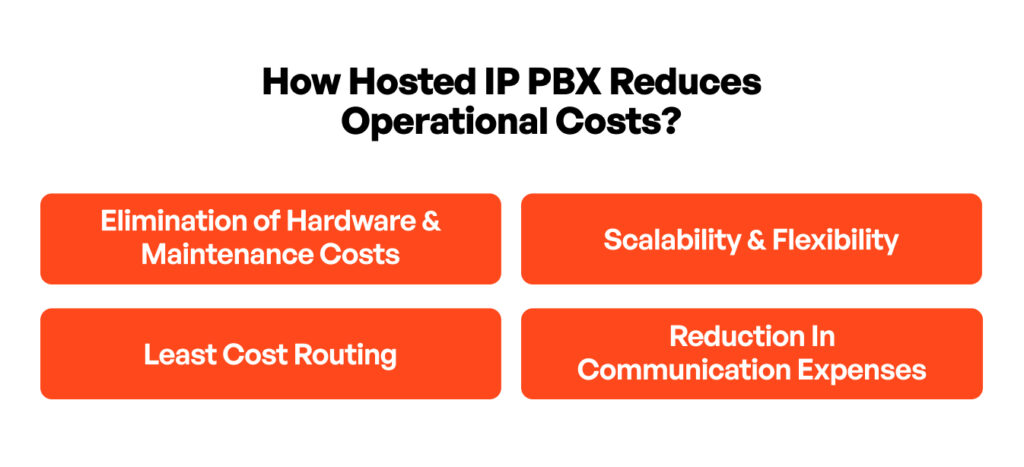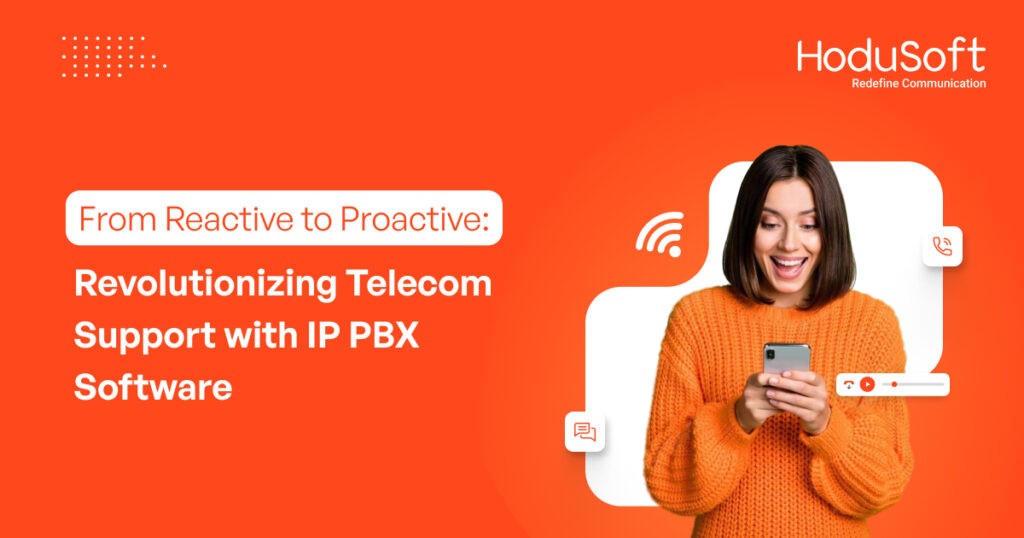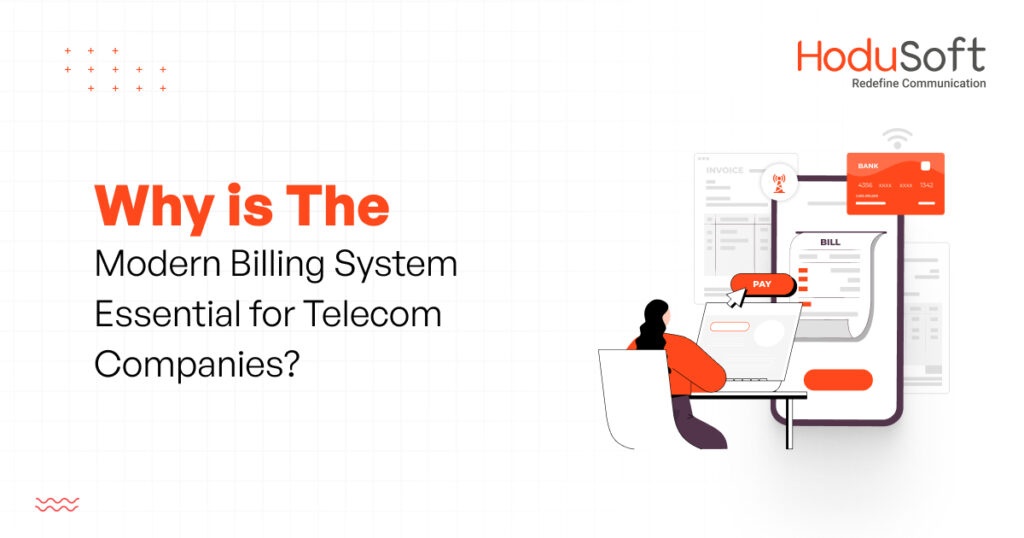Reduce Costs, Enhance Security: Why Telecom Companies Needs Hosted IP PBX Software?
The telecom industry is one of the most competitive and dynamic sectors that holds great significance in the global business landscape. The increased reliance on digital technologies and internet connectivity further accelerates innovation and competition within the sector.
The services offered by the telecom industry enable businesses to operate smoothly and efficiently. However, to succeed in such an industry, one needs to understand the challenges the industry faces in the present times and adopt effective solutions to mitigate those.
One of the major challenges the telecom industry faces is the widespread use of outdated legacy systems. In an age, when the success of every business depends on the tech stack it leverages, using outmoded technology tools is like participating in a Formula One race driving an old jalopy (or engaging in modern warfare armed with sticks and stones.)
That’s why using the right communication systems such as Hosted IP PBX software can make a whole lot of difference. In this blog, we have discussed everything including:
And we also have some exclusive findings for you. So without further ado, let’s dive right into the blog post and understand why telecom companies need hosted IP PBX software.
Challenges Faced by Telecom Companies Today
Gone are those days when doing business was relatively easy. In today’s fast-paced world, businesses across industries, not only the telecom sector, face a lot of challenges due to increased competition, changes in technology, expensive resources, and many other factors. Here are some challenges telecom companies face today:

1. Rising Costs
The number one challenge telecom companies of the present time face is the rapidly rising costs. When we say ‘costs,’ it not only indicates operational costs but all costs. The constant need for infrastructure upgrades to support emerging technologies demands significant capital investment. Moreover, customer expectations for high-quality, seamless service require telecoms to invest in advanced customer service and support systems, adding to the overall expenditure. In such times, they must look for ways and tools that can help them reduce costs.
2. Outdated Legacy Systems
Would you be surprised to know that outdated legacy systems are the biggest threat to telecom firms? Legacy systems not only make it difficult for businesses to resolve customer issues efficiently but can also be expensive in the long run. Yes, these systems are quite difficult and expensive to maintain, support, and integrate with various business tools and applications.
3. Manual Processes
Be it answering customer queries or providing customer support, doing all the activities manually is extremely inefficient and labor-intensive. In the rapidly changing digital world, why do telecom companies do their work manually when they can automate their entire processes and save money, time, and effort?
Since telecom businesses have to deal with a huge amount of data on a daily basis, managing processes manually can result in a lower customer satisfaction rate. As per a study, 70% of telecoms are now looking for new options to enhance revenue growth. They plan to use emerging technologies like 5G and edge computing to offer differentiated solutions to customers.
4. Data Security Risks
With a 51 percent rise in average weekly cyberattacks in 2021, the telecom industry stood out as the third most susceptible sector to cyber threats. In total, thousands of customer accounts and sensitive personal information were compromised due to the attacks. This wouldn’t have happened had the telecom companies bolstered their security.
5. Data Silos
Telecom companies that deal with customer issues, manage customer information, and other details using multiple outdated legacy systems face difficulty in consolidating information in one place. The data silos caused by the involvement of different traditional systems increase nothing but inefficiency.
Popularity of Hosted IP PBX Software
Hosted IP PBX is a cloud-based telephone system hosted on a VoIP service provider’s servers instead of a telecom company’s on-premise hardware. Unlike regular IP PBX systems that are hosted on a regular desktop and other hardware, hosted IP PBX software is deployed on commercial cloud telephony operators based on the expected traffic and criticality.

As per a recent report, the market size of hosted IP PBX software is projected to grow at a compound annual growth rate of 15 percent from more than USD 63 billion in 2023 to USD 264 billion by the end of 2036. The growth is projected to be propelled by growing small and medium-sized businesses.
If we look at the total market share captured by hosted IP PBX software, it has grown considerably after the pandemic. In 2018, it was just 25 percent and it increased to 30 percent in 2020. As per a projection by the Eastern Management Group, the cloud IP PBX market has surpassed the on-premise IP PBX in 2022.
How Hosted IP PBX Software Can Reduce Operational Costs?
What’s the biggest advantage of hosted IP PBX software? It’s the cost advantage. Let’s put it this way; when a telecom business doesn’t have to buy specialized hardware or pay maintenance costs, benefits from least cost routing, and scales up and down its operations as per its requirements, it is certainly going to witness a dramatic reduction in its costs.

Hosted IP PBX software has undoubtedly proven to be a boon for telecom companies as far as cost optimization is concerned. Here are the ways hosted IP PBX software reduces telecom companies’ costs:
1. Elimination of Hardware and Maintenance Costs
Renowned entrepreneur Steve Jobs once remarked, “I don’t need a hard disk in my computer if I can get to the server faster.” That’s precisely how the hosted IP PBX operates. Its operating domain is the cloud, which enables it to carry out all activities without the need for an on-premise server. Unlike its traditional PBX counterpart, hosted IP PBX software does not require considerable upfront investments in servers, switches, and wiring.
Telecom companies that leverage hosted IP PBX software don’t have to purchase and maintain any equipment on their own. They can simply pay on a subscription basis and get all the features and the upsides that an on-premise IP PBX solution would provide. By foregoing massive hardware and maintenance costs, telecommunication companies can channel their funds into something more productive.
2. Scalability and Flexibility
Telecom companies’ contact centers often experience significant fluctuations in call volumes, driven by various factors like marketing campaigns, product launches & inquiries, service outages, and seasonal trends. High call volume may lead to longer wait times and increased customer frustration, on the other hand, low call volumes can result in underutilized staff. In this case, implementing scalable solutions like Hosted IP PBX software can help telecom companies dynamically adjust resources and optimize performance.
Hosted IP PBX software offers unparalleled scalability. Sophisticated hosted IP PBX software solutions enable telecom companies to add and remove as many extensions and phone lines as they need without incurring extra costs or making considerable changes to their existing infrastructure. Moreover, hosted IP PBX systems support a wide range of integrations and customizations, providing the flexibility to meet diverse customer needs and adapt to evolving technological advancements, thereby enhancing overall service delivery and competitiveness.
3. Least Cost Routing
Least Cost Routing (LCR) is a technology that finds the least expensive path to make calls. LCR is one of the key functionalities in hosted IP PBX software and it routes calls intelligently and cost-effectively by analyzing several factors such as call destination, carrier rates, time of day, and available network resources. Even if a company manages to save some cents on every call, it will matter a lot if the firm handles a lot of calls every day.
In the context of telecom companies, LCR algorithms make sure that customers all over the world can use the most cost-effective communication routes without compromising on reliability and call quality. By eliminating the need for manual route selection and constant monitoring of rate changes, this automated process enhances efficiency and cost-effectiveness. It would be correct to say that by leveraging LCR, telecom companies can maximize their profit margins, offer competitive pricing to customers, and maintain high standards of service reliability.
4. Reduction in Communication Expenses
Hosted IP PBX software can reduce communication expenses by leaps and bounds for telecom companies. As they run on Voice over Internet Protocol (VoIP) technology, they can cut the startup communication costs as well as international calls costs by up to 90 percent. By leveraging internet-based calling and routing, hosted IP PBX systems eliminate the need for traditional phone lines, thus drastically reducing costs associated with long-distance calls and inter-office communication.
Apart from that, hosted IP PBX software solutions offer flexible pricing models, which enable telecom companies to pay only for the features and services they need. All in all, the cost savings brought by hosted IP PBX solutions can be considerable for telecommunication companies.
How Hosted IP PBX Software Can Enhance Security?

Telecom companies can greatly enhance their security by leveraging advanced technologies and centralizing management with hosted IP PBX software. The use of robust encryption protocols for voice and data transmission is a primary security advantage. Consequently, sensitive information, such as customer details and exclusive business communications, remains safe from spying and interception.
Additionally, features like Stir/Shaken offered by hosted IP PBX systems help eliminate spoofed robocalls and ensure the legitimacy of caller ID information. This provides an extra layer of defense against cyber threats.
Most hosted IP PBX systems come with firewalls and intrusion detection systems that continuously monitor network traffic for suspicious activity. By regularly updating these systems, the service provider ensures that the security measures are always up-to-date and effective.
Furthermore, hosted IP PBX software simplifies the implementation of comprehensive security policies across the entire communication network by centralizing security management. As a result of this centralization, security protocols, user authentication, and access controls are consistently applied, minimizing the risk of security breaches caused by human error or inconsistent policy implementation.
A majority of service providers also offer 24/7 monitoring and support, which help minimize and address security incidents promptly. With experienced providers handling security, telecom companies can benefit from expert knowledge and dedicated resources, enhancing their overall security infrastructure without needing extensive internal security resources.
How To Choose The Right Hosted IP PBX Software?
In an extremely crowded market, handpicking the right hosted IP PBX software can mean the difference between success and failure in your telecom business. Thankfully, there are some ways using which you can select the right hosted IP PBX software for your business:

1. Determine Your Requirements and List the Features You Need
First thing first; determine the requirements of your business and list the features you would need in the hosted IP PBX software. For instance, you can take a look at the daily call volume and project the future call volume so that the hosted IP PBX software can accommodate your growing needs.
Also, consider factors such as the number of users, expected call volume, and the types of calls you handle—be it internal, local, international, or a mix. Don’t forget the scalability factor, as the solution you choose should accommodate growth and evolving business needs. Ensure the software supports mobile and remote workers, providing seamless communication regardless of location.
Based on your requirements, list the features you want in the hosted IP PBX software. Some key features are call routing, call forwarding, auto-attendant, IVR, voicemail-to-email, call recording, and CRM integration.
2. Set a Budget
After determining your requirements and taking both upfront expenses and ongoing costs into account, set a reasonable budget. Make sure the budget is not too low where you will have to compromise with the quality of software and neither should it be too high so that you end up paying more than what you should.
It should be in a reasonable range. The best way to set that is to have some idea about the market value of a hosted IP PBX software solution with all the features you need. If you are not so sure about the budget, you can ask some senior team members to help.
3. Look for Providers Using High-Intent Search Terms
Now that you have a list of features you want in hosted IP PBX software as well as a reasonable budget in mind, it’s time to look for the right software that can meet your requirements within the budget.
You don’t have to look any further than your phone or laptop. Open a tab and type some high-intent terms in the search box of Google or your preferred search engine. The terms can be “hosted IP PBX software for telecom companies,” “best hosted IP PBX software provider (in your area or country),” “cost-effective IP PBX software provider,” and so on.
Feel free to use a combination of the search terms and press the enter button. Dozens of results will appear on the first search engine result page. You don’t have to look any further. It will have websites of both software providers as well as aggregators.
4. Visit Websites and Compare Features, Prices, and Pros and Cons
The next part is to visit at least four-five websites and compare different hosted IP PBX software solutions on the basis of their features, prices, pros and cons. Make sure you visit a mix of software providers’ websites as well as that of aggregators’.
The former would enable you to know many key things about a provider’s hosted IP PBX software in detail such as the brand story, the company’s mission and vision, contact details, the software’s features, pricing plans, free trials, and more. The latter would help you look at a list of 10 or 20 software solutions in one place and provide a bird’s-eye-view of the features, pros and cons, and pricing plans.
5. Shortlist Promising Software Providers and Call Them
After visiting websites, shortlist some promising software providers and contact them one by one. While contacting them ask them about their hosted IP PBX software and questions related to it. For instance, ask questions about the scalability of the software as well as know what technical support the software provider can provide.
Also, ask each software provider if they offer a free trial (free demo) for a specific number of days. If they reply in the affirmative, continue the discussion. If they don’t, end the call politely and move to the next software provider. Some software providers don’t mention the information related to free trials on their websites. That’s why asking this question is extremely crucial.
6. Request for the Free Demo and Ask Your Team to Review the Software
Now that you have separated the software providers that do provide free demos from the ones that don’t, it’s time to request the free trial and introduce the demo version of the hosted IP PBX software in your company.
Ask your team to use the demo version of the hosted IP PBX software for the entire trial period and provide feedback after that. Let’s assume, your team members used the demo versions of four different software providers, and ask them which one is the best among all.
Once your team members choose the software that performs the best as per your organization’s requirements, consider buying it immediately without any further delay. This is the point where your search for the best hosted IP PBX software ends.
All in All,
As the telecom sector continues to grapple with challenges such as rising costs and vulnerability to cyber-attacks, hosted IP PBX software comes as a life-saver. By leveraging sophisticated hosted IP PBX software, telecommunication companies can reduce their operating costs considerably and enhance security measures.
If you are an owner of a telecom company, then you must look for the right hosted IP PBX software that can enable your organization to streamline customer service. At HoduSoft, we happen to have just the right solution for all types of businesses. If you want to know more about HoduPBX – IP PBX software and how it would work for your organization, contact us today to book a free demo.



